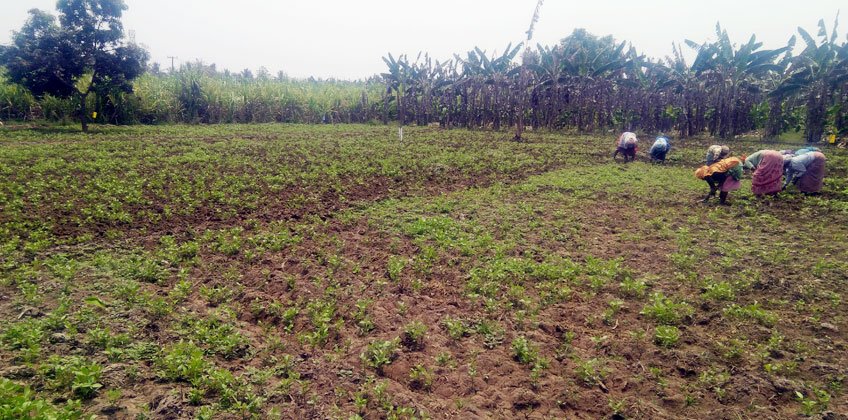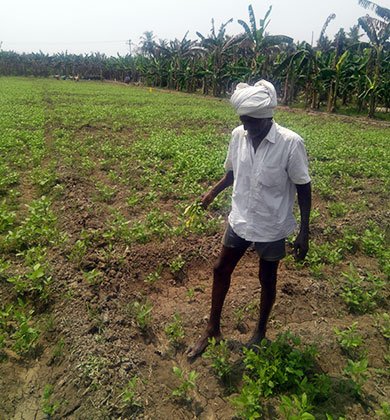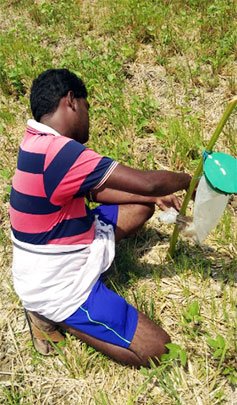
Are wetland farmers of Tamil Nadu becoming more open to reduced pesticide usage?
Black Gram (Urad) is a good rotation crop between rice fallows. Nodules in the roots help in nitrogen fixation and replenishment of soil nitrogen. Black Gram has also commanded good prices in the market in the last few years and therefore been a popular rotation crop in the Cauvery Delta. Unfortunately, this crop is subjected to pesticide overuse many times.
Magasool has been working with small and marginal farmers of Lalgudi and surrounding areas in the banks of the Kollidam River (a distributary of Cauvery) for more than 7 years. We have been trying to introduce pheromone traps and glue traps to reduce pesticide usage by farmers for several years now. During early attempts farmers showed reluctance in adopting these measures.
Dry-land pulses and maize farmers have been far more welcoming of environmentally friendlier ways to control pests. We were always surprised by how much more eager they were in experimenting with pheromone and mechanical traps. Was this because they had only one shot (the monsoon season) at agriculture and any measures to reduce cost (cost of pesticides and the labour cost of spraying pesticides) been always welcome?

Farmer inspecting his Black Gram crop
The wetland farmers of Lalgudi grow at-least 2 crops and sometimes 3 crops in year. Did this make them care less about their pesticide expenses? Fortunately, attitudes and practices seem to be changing now. There has been a sharp increase in farmers contacting Magasool coordinator Balakrishnan for know-how on integrated pest management.
Why this shift? Are the farmers getting better informed about the ill effects of pesticides? Has labour for spraying become more scarce? Have farmers become more aware of integrated pest-management methods? Have the pest traps improved in quality and performance? A combination of these and some other reasons?

Magasool Coordinator Balakrishnan fixing a pheromone trap
We do not have an answer, but Magasool is extremely happy to ride the tide and help farmers move to more inexpensive pest control methods with far lesser environmental impacts.



